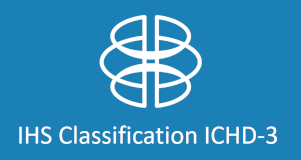Previously used terms:
Drug-induced headache; medication-misuse headache; rebound headache.
Coded elsewhere:
Patients with a pre-existing primary headache who, in association with medication overuse, develop a new type of headache or a significant worsening of their pre-existing headache that, in either case, meets the criteria for 8.2 Medication-overuse headache (or one of its subtypes) should be given both this diagnosis and the diagnosis of the pre-existing headache. Patients who meet criteria for both 1.3 Chronic migraine and 8.2 Medication-overuse headache should be given both diagnoses.
Description:
Headache occurring on 15 or more days/month in a patient with a pre-existing primary headache and developing as a consequence of regular overuse of acute or symptomatic headache medication (on 10 or more or 15 or more days/month, depending on the medication) for more than 3 months. It usually, but not invariably, resolves after the overuse is stopped.
Diagnostic criteria:
- Headache occurring on ≥15 days/month in a patient with a pre-existing headache disorder
- Regular overuse for >3 months of one or more drugs that can be taken for acute and/or symptomatic treatment of headache1;2;3
- Not better accounted for by another ICHD-3 diagnosis.
Notes:
- Patients should be coded for one or more subtypes of 8.2 Medication-overuse headache according to the specific medication(s) overused and the criteria for each below. For example, a patient who fulfils the criteria for 8.2.2 Triptan-overuse headache and the criteria for one of the subforms of 8.2.3 Non-opioid analgesic-overuse headache should receive both these codes. The exception occurs when patients overuse combination-analgesic medications, who are coded 8.2.5 Combination-analgesic-overuse headache and not according to each constituent of the combination-analgesic medication.
- Patients who use multiple drugs for acute or symptomatic treatment of headache may do so in a manner that constitutes overuse even though no individual drug or class of drug is overused; such patients should be coded 8.2.6 Medication-overuse headache attributed to multiple drug classes not individually overused.
- Patients who are clearly overusing multiple drugs for acute or symptomatic treatment of headache but cannot give an adequate account of their names and/or quantities are coded 8.2.7 Medication-overuse headache attributed to unspecified or unverified overuse of multiple drug classes until better information is available. In almost all cases, this necessitates diary follow-up.
Comments:
8.2 Medication-overuse headache is an interaction between a therapeutic agent used excessively and a susceptible patient. Among those with a previous primary headache diagnosis, most have 1. Migraine or 2. Tension-type headache (or both); only a small minority have other primary headache disorders such as 3.3 Chronic cluster headache or 4.10 New daily persistent headache.
The diagnosis of 8.2 Medication-overuse headache is extremely important clinically. Epidemiological evidence from many countries indicates that more than half of people with headache on 15 or more days/month have 8.2 Medication-overuse headache. Clinical evidence shows that the majority of patients with this disorder improve after discontinuation of the overused medication, as does their responsiveness to preventative treatment. Simple advice on the causes and consequences of 8.2 Medication-overuse headache is an essential part of its management and can be provided with success in primary care. An explanatory brochure is often all that is necessary to prevent or discontinue medication overuse. Prevention is especially important in patients prone to frequent headache.
The behaviour of some patients with 8.2 Medication-overuse headache is similar to that seen with other drug addictions, and the Severity of Dependence Scale (SDS) score is a significant predictor of medication overuse among headache patients.
In the criteria below for the various subtypes, the specified numbers of days of medication use considered to constitute overuse are based on expert opinion rather than on formal evidence.
It is recognized that cross-sectional population-based studies estimating the prevalence of 8.2 Medication-overuse headache can record the coexistence in participants of headache on ≥15 days/month and overuse of drugs for acute and/or symptomatic treatment of headache but are rarely able to collect information on earlier headache, on duration of the current headache or medication overuse, and/or that might support a presumption of causation. In consequence, either or both of criteria A and B may not be entirely fulfilled. Provided that criteria are not fulfilled for another ICHD-3 diagnosis, such cases should be reported as probable medication-overuse headache (pMOH), although ICHD-3 does not provide a coding for this.
